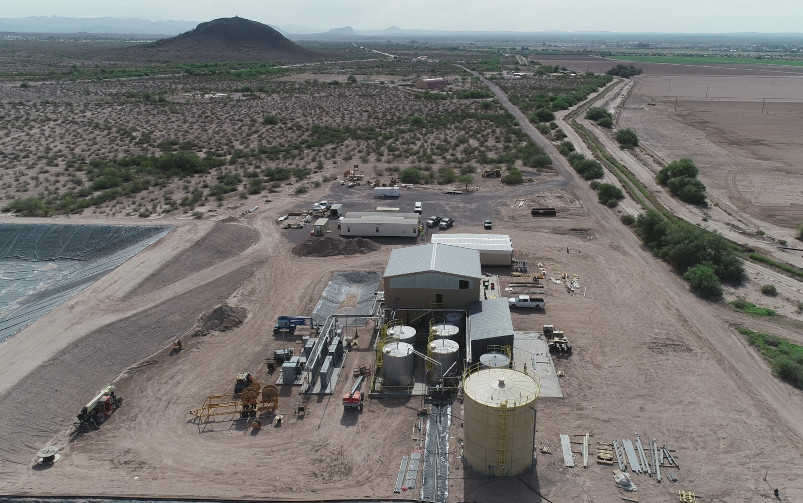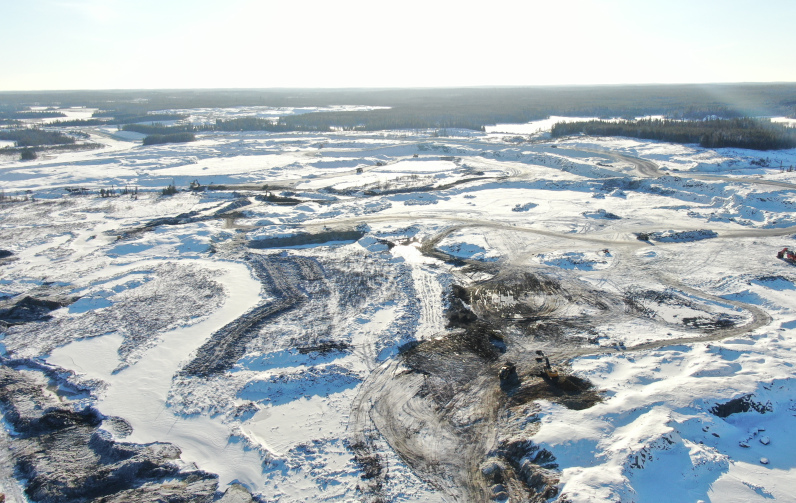Chris Taylor and the Great Bear Resources exploration team will be awarded the Bill Dennis Award for discovering the Dixie project in Red Lake, Ontario, now owned by Kinross. Courtesy of Kinross Gold.
Welcome back to your weekly mining news recap, where we catch you up on some of the news you may have missed. This week’s headlines include Australia’s Galilee coal project facing roadblocks due to carbon emissions, Bill Gates’s newest venture looks to shift mining away from fossil fuel reliance and the 45th edition of the PDAC awards honours five recipients for their accomplishments.
After decreased interest in uranium spanning over several years, many are beginning to turn back to the sector, with decarbonization in mind. Uranium exploration has begun to gain traction once again as many are leaning on nuclear energy to power the future. For uranium to evoke significant changes in the decarbonization shift, its production will need to be increased significantly.
Barrick Gold is being sued by several Tanzanian villagers following alleged reports of human rights violations, including police killings and other abuses, as reported by Al Jazeera. A claim has been filed in the Ontario Superior Court of Justice. The plaintiffs accuse Barrick of being complicit in what is allegedly a series of police-conducted killings and beatings of local residents, claiming the mining company exerts control over police surrounding the North Mara mine site. Barrick denies the allegations.
The harmful effects of diesel particulate exposure have led United Steelworkers Local 6500 to work towards making some changes to the province’s legislation regarding the carcinogen’s presence in mining, as reported by The Sudbury Star. The union has teamed up with the Centre for Research in Occupational Safety and Health at Laurentian University and Occupational Health Clinics for Ontario Workers to propose lowering Ontario’s occupational exposure limit for the carcinogen. The proposed change would decrease the limit to 20 micrograms per cubic metre, down from 400, but the rules dictating exposure limits are quite complex and hard to change.
A proposal for Waratah Coal’s Galilee project has been shut down by the Queensland Land Court in Australia on the grounds that the carbon dioxide emitted from the fuels would infringe on human rights, as reported by Bloomberg. The project would reportedly release 1.58 billion tonnes of carbon dioxide, more than three times the country’s annual domestic emissions, over the course of the mine’s lifespan. The ruling could set a precedent for other projects in the region, should it hold up on appeal.
Ontario has launched a new $5 million fund aimed at fast tracking the creation of new technologies that will be used for battery-powered electric vehicles, as reported by Northern Ontario Business. The Critical Minerals Innovation Fund would ideally help to advance the “exploration, mining, smelting and processing of critical minerals” over the next two years. The funding would also help to support the much-needed shift to a more sustainable industry.
A climate fund linked to Bill Gates’s Breakthrough Energy Ventures has invested €12 million in technology that aims to reduce energy usage and lower carbon emissions at mining sites, as reported by BNN Bloomberg. Pulse Inc.’s I-ROX technology breaks rocks and mineral ores using brief but powerful bursts of energy. This technology could reportedly aid metal producers in reducing carbon impacts, while shifting away from the reliance on fossil fuels.
Unionized workers at Chile’s Escondida mine have refused an offer made by Australian-based BHP aiming to steer clear of an upcoming strike, as reported by Mining.com. BHP and Sindicato 1, representing more than 2,000 mine workers, came to an agreement on Monday, but union members voted against it due to concerns that pre-existing legal regulations and commitments in the previous collective agreement had not been complied with. The unionized workers were not satisfied with BHP’s proposed security measures and could begin striking next week.
Canadian Nuclear Laboratories has signed a memorandum of understanding with Atomic Energy of Canada (a federal Crown corporation), as well as the University of Ottawa in order to engage in collaborative research projects. These research opportunities will centre on the health and environmental sciences, clean energy and nuclear safety. Several areas of study that have been outlined include radiobiology, cybersecurity, hydrogen production and more.
A subsurface mineral public offerings was, held on November 21 by the Government of Saskatchewan, resulting in $3.3 million in provincial revenue due to a rising demand for critical minerals, as reported by SaskToday. A total of 15 subsurface permit blocks measuring 153,335.43 hectares were offered and ten blocks were purchased with the highest bid totalling $2.7 million for a prospective potash block north of Moose Jaw. The next public offering is set to take place on July 10, 2023.
The Prospectors & Developers Association of Canada (PDAC) announced the recipients of the 45th annual PDAC awards. Chris Taylor and the exploration team from Great Bear Resources will receive the Bill Dennis Award, Glenn Nolan will take home the Skookum Jim Award, the Lundin Foundation will receive the Sustainability Award, Chalice Mining’s Kevin Frost and Morgan Frejabise will receive the Thayer Lindsley Award, and finally, Alamos Gold’s John A. McCluskey will be awarded the Viola R. MacMillan Award.
That’s all for this week. If you’ve got feedback, you can always reach us at editor@cim.org. If you’ve got something to add, why not join the conversation on our Facebook, Twitter, LinkedIn or Instagram pages?




